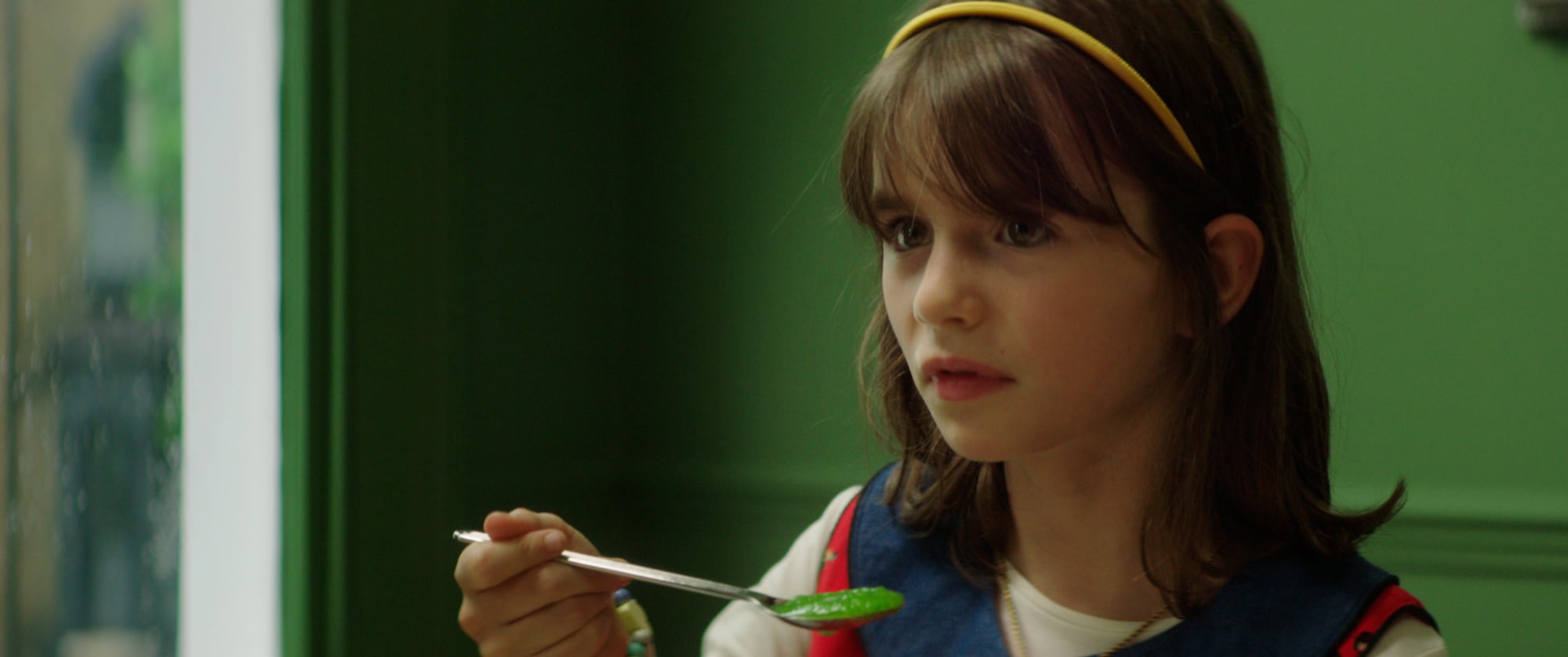
As the therapist in filmmaker Charlotte Hamblin’s quirky, offbeat dark comedy Everybody Dies…Sometimes tells us, that the only inevitability in life is death. A stark and not so comforting fact for the film’s protagonist Mara, who is struggling with the long-held belief, well supported by her tragic history, that she’ll cause the demise of anyone she gets close to. Everybody Dies…Sometimes is an oddly joyous and buoyant take on that existential doom we all face, which flashes through a series of truly funny fatal scenarios experienced by those prematurely taken from Mara’s life. Writer/Director Hamblin draws from her own lamentable over-familiarity with death in this semi-autobiographical directorial debut in which the established screenwriter’s script, coupled with Tanya Reynolds’ (Sex Education) and Mathew Horne’s (Gavin & Stacey) perfectly deadpan delivery and the film’s colourful visuals, turn the spectre of death into something to poke fun at. After charming audiences on the festival circuit Everybody Dies…Sometimes has now arrived online and so we spoke to Hamblin about striking a balance between telling an autobiographical story and knowing what would best serve the film, finding an editor whose background in stand-up allowed them to hit the all important humour beats and determining when to kill her darlings!
Is it risky asking where the inspiration came from for this darkly comic tale?
Everybody Dies…Sometimes is a semi-autobiographical film. When I was a child I lost a lot of people in my life. Struggling, I was sent to see a therapist, who diagnosed me with chronic death anxiety. The therapist, six sessions in, died. You couldn’t write it?! (But obviously I did). It was only telling someone this story years later that I realised that this was a unique and extraordinary thing to happen so I wanted to make a film about it. Also, it was so bad it was incredibly funny. I’d been working as a screenwriter for years and had never thought about directing, mainly because there was never a story I felt that only I could tell. And this was it! It’s so bizarrely unique and I wrote it during lockdown, which was kind of brilliant as finally there were people who got the whole death anxiety thing! I was working with Leonora Darby at Tea Shop and she encouraged me to direct something. And thus, Everybody Dies…Sometimes was created!
I’ve never seen a film deal with death anxiety; how dark, complex and down right hilarious it can be.
The way I dealt with my anxiety as a child was through children’s stories. I’d escape into these weird and wonderful worlds. The film is therefore heavily influenced by Roald Dahl and the pace of Wes Anderson. Despite the heaviness of the subject matter, I wanted the film to feel impish and magical like those children’s stories. I wanted to tell this story as a zany, almost coming-of-age tale that navigates the effects of repressed childhood trauma and how it can impact the rest of your life with iconic, sad and hilarious consequences. I’ve never seen a film deal with death anxiety; how dark, complex and downright hilarious it can be. In the current climate and in a post-pandemic world, death and grief are at the forefront of public consciousness. Now more than ever is the time to deal with issues such as isolation, loneliness and fear with some bat shit humour and riotous joy!
You have the perfect amount and balance of deaths to be absurd but not ridiculous, when did you know enough was enough?
Interesting, it’s based on my life, or sort of. And there were more deaths. I think there’s a reason people say, “If you wrote it no one would believe it”. I suppose that’s just instinct, and rhythm. I think it’s about knowing when the audience will get fatigued by something and then it stops being effective. A key thing to remember when you’re doing anything semi-autobiographical is what actually happened or is interesting to you, might not serve the story or the message you’re trying to get across. Learn to kill your darlings and chuck your ego out the door. It works!
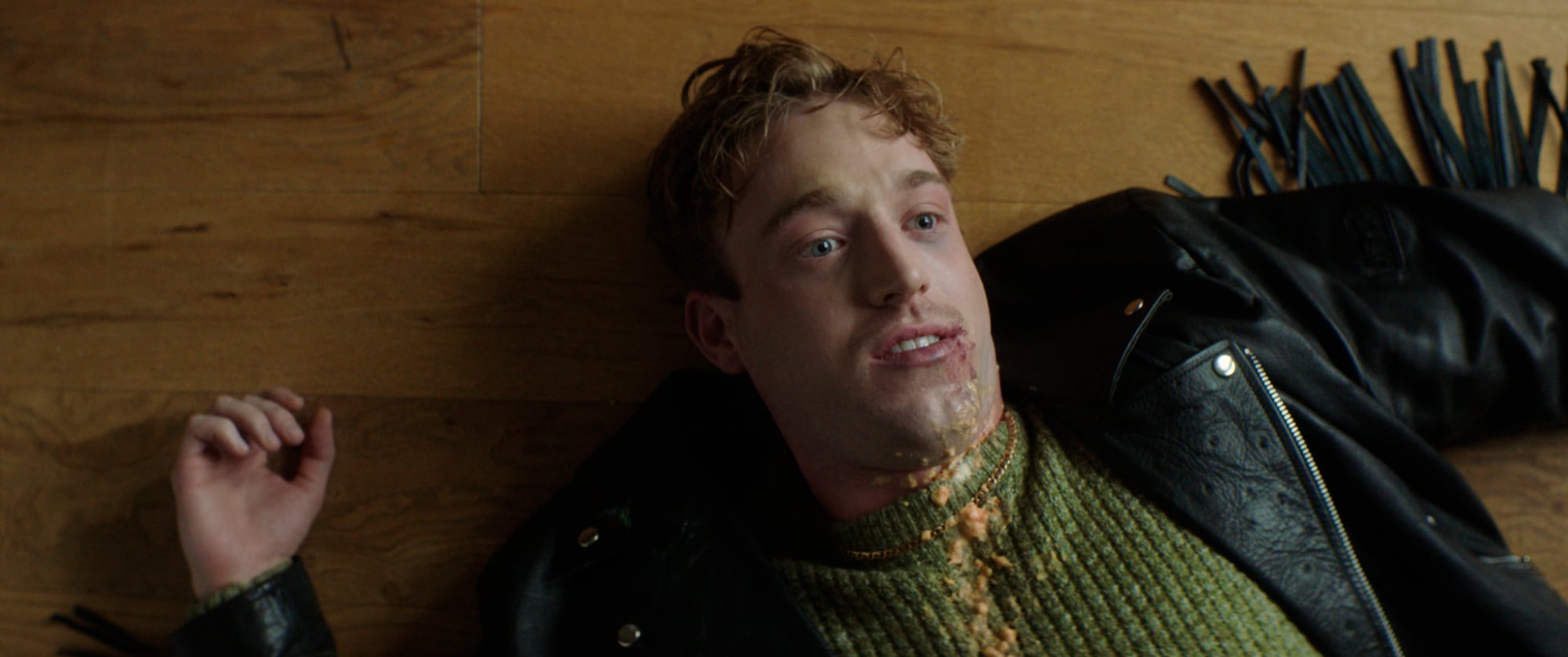
I realised that I’m a writer with a strong visual aesthetic, I know what I want in a shot and often, write in edit!
How did you find the shift from screenwriter to directing and how did your background affect your approach to the making of the film?
I started screenwriting around 2017 as a natural progression from writing for theatre. And it’s been amazing. I got my ‘break’ (whatever that means) writing on HANNA series two under showrunner David Farr, The Night Manager, and I learnt so much. I now have my own series and films in development, working with Olivia Colman and her company South of the River which is pretty awesome and I have about eight projects in development. It was through these and working with different companies I realised that I’m a writer with a strong visual aesthetic, I know what I want in a shot and often, write in edit! So with the right encouragement from my agent, Emma Obank and Leo Darby at Tea Shop, I shifted into directing. I think having a bonkers imagination helped. I never went to film school so I didn’t quite understand fully what directing entailed. But the more I learned through being on sets and listening to people made me realise I could give that a go! And actually, blind naivety can be so good! I wish I could get that back, I think it’s a bit of a superpower!
How did the support and guidance of Tea Shop help you as someone relatively new to directing?
I’m not sure I’d have had the balls to go for it on my own. Leo Darby was the one who told me I should direct. Someone giving you that backing is amazing. I was working with Tea Shop on various projects and then they offered me money to make something which was invaluable. We split the cost of the production and I decided from day one I would ask every moronic, obvious question there was. I think we all spend so much time worrying about looking stupid, or not knowing (particularly as women) that we don’t ask when we don’t understand something. But I just put all that to one side and they were great and supported me through it. I took over producing the festival circuit which was a huge learning curve but I’m so so glad I’ve done it. I just learnt as I went and feel I now have an understanding of that world. No one explained to me how to go about it, I just sort of went for it and learned on the job!
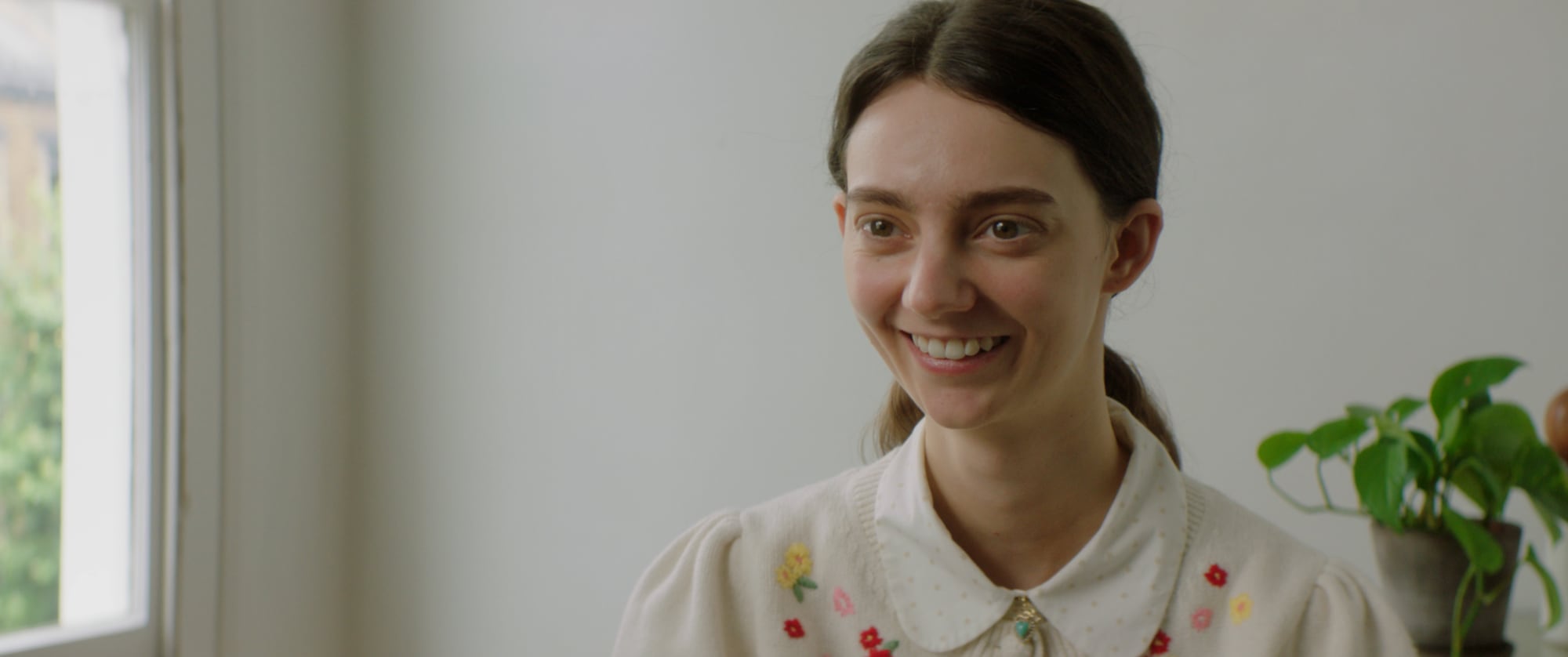
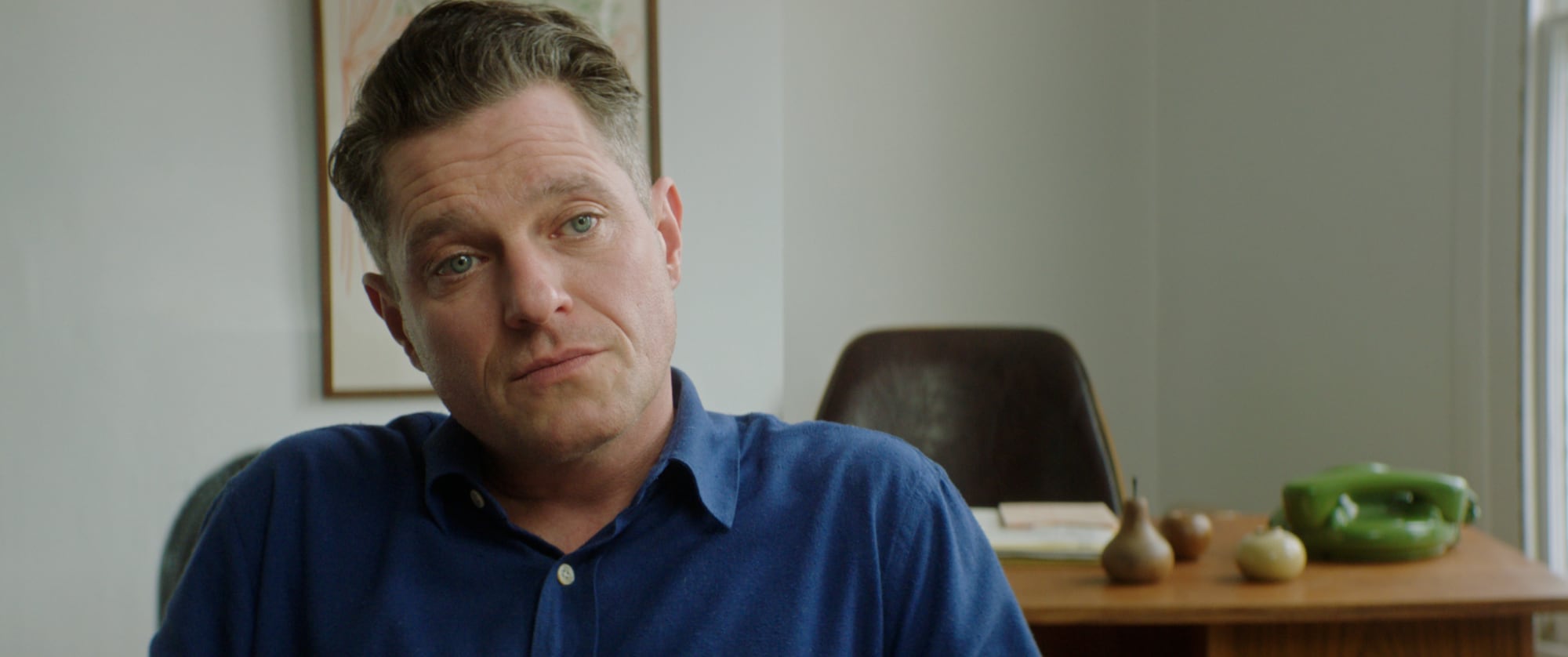
I loved Tanya Reynolds in Sex Education and her quirky nature is so apt for this role
There was only one person I was thinking of when I wrote this part. Tanya Reynolds. I think she’s a genius and no one does tragicomedy like her. I do think her performance in Everybody Dies is a master class on how to do it. I’d been introduced to her after seeing her in a play at the Royal Court and we stayed in touch. I pinged her the script and I couldn’t believe it when she said yes. She’s an utter legend and the biggest generous joy to work with. I also can’t believe Mat Horne said yes. I’ve always adored him, he’s a magical actor. I’ve not seen him do anything like this before which I love. He’s so cool and calm throughout, and then just at the end lets his guard down and it breaks my heart every time! I also knew this film would suck if the cast weren’t amazing. Most of them don’t say anything but they still have to be blisteringly brilliant. And they were. Some of the most sensational comic actors I know. We were so lucky.
The influences of Roald Dahl and Wes Anderson trickle in and translate to a real joyful spirit of childhood films in the production.
Oh I’m so glad! As I mentioned, when I was little and suffering from this death anxiety, a real coping mechanism was children’s stories. I’m super dyslexic (like most people in this industry) and struggled with reading. My mum was an absolute legend, she panicked I’d never read and bought me every single story on an audio cassette (back in the day). I’d listen to them at night and they’d help send me to sleep. I’ve always loved children’s literature, it’s so dark, joyous and punchy! I think you can see that there’s a huge Roald Dahl influence there. He’s deliciously sinister, but there’s always a message of hope. And hope is important. We bloody need it right now.
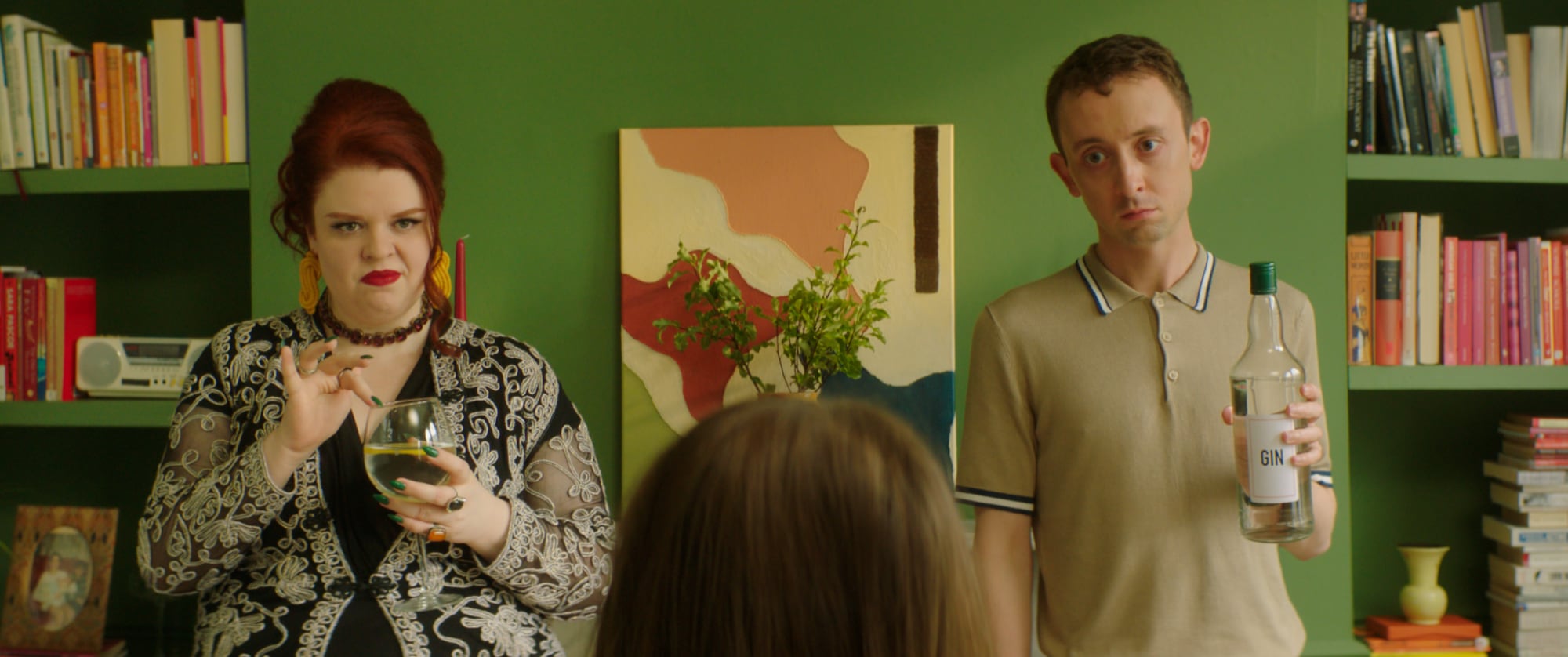
As the story is told from Mara’s memory, everything is magnified, exaggerated, not quite naturalistic.
A lot of the influences have come through the colour. Shooting something from the perspective of a child is so much fun, it always has that slightly magnified, absurd lens to it. Bold, zany joy! As the story is told from Mara’s memory, everything is magnified, exaggerated, not quite naturalistic. One of my favourite details is Granny’s spider broach, very Aunt Spiker and Aunt Sponge from James and the Giant Peach. Lucy Upton Prowse in costume and Annabelle Miller, hair and make up) played a blinder. They blew the brief out of the water! Also, Sparrow Michell who plays young Mara was just perfect. She nailed the vulnerability and the gorgeous zany looks to the camera which Tanya has as adult Mara.
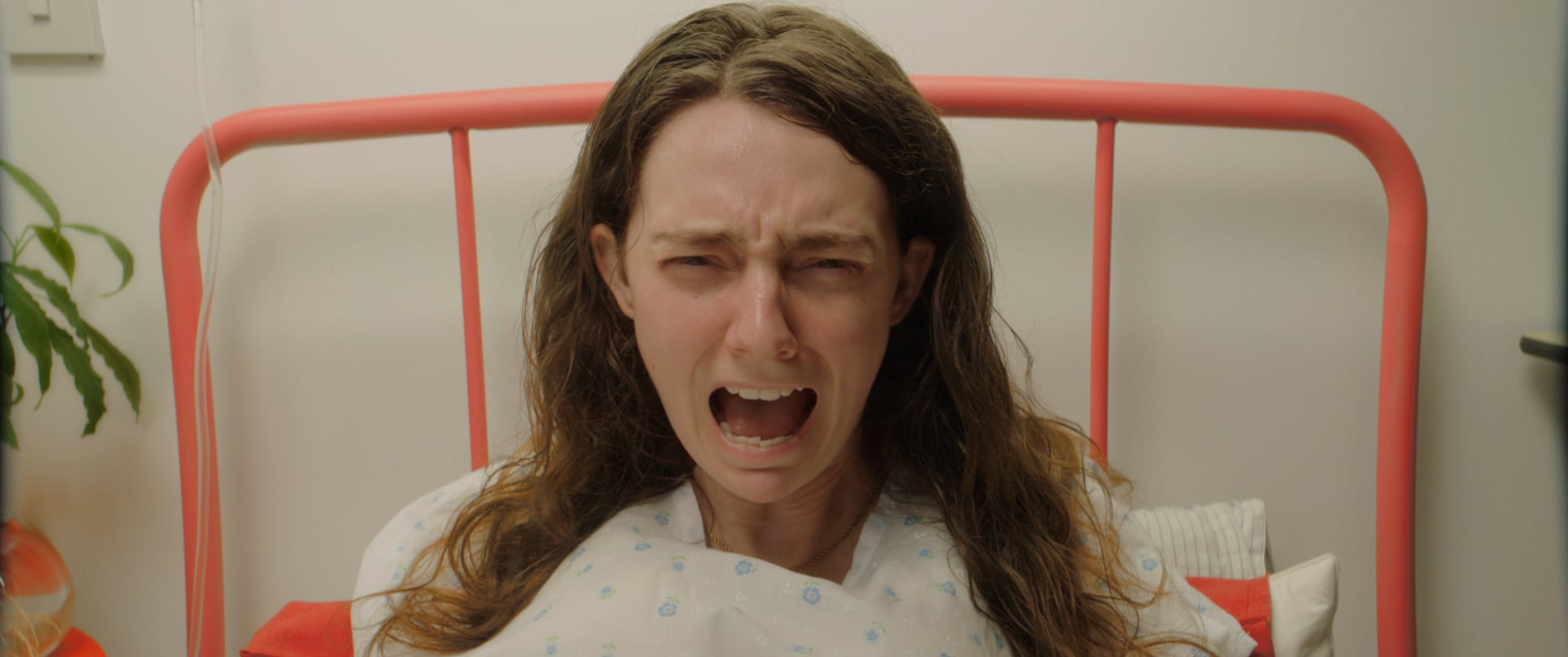
What did the conversations between you and DoP Simon Plunket look like to bring your bold and very much timeless look to the screen?
Simon and I are total opposites. He’s super calm, poised, a total pro. I’m high energy, quite bonkers with a new idea every two seconds and only really speak in hyperbole. He has the extraordinary ability to translate my brain into clear, concise images. I spoke at him a lot and he’d produce exactly what I wanted. Our relationship works so well. I think we both had the same reference points for the film. Those Wes Anderson, Amelie vibes, and of course the 90’s Matilda! Simon was also deeply kind and hand held me a lot through it all when I had zero idea what was going on! He shot on Alexa Mini and used Cooke anamorphic lenses and everything was shot over two days in my flat and my neighbours. Pure joyous chaos.
Blind naivety can be so good! I wish I could get that back, I think it’s a bit of a super power!
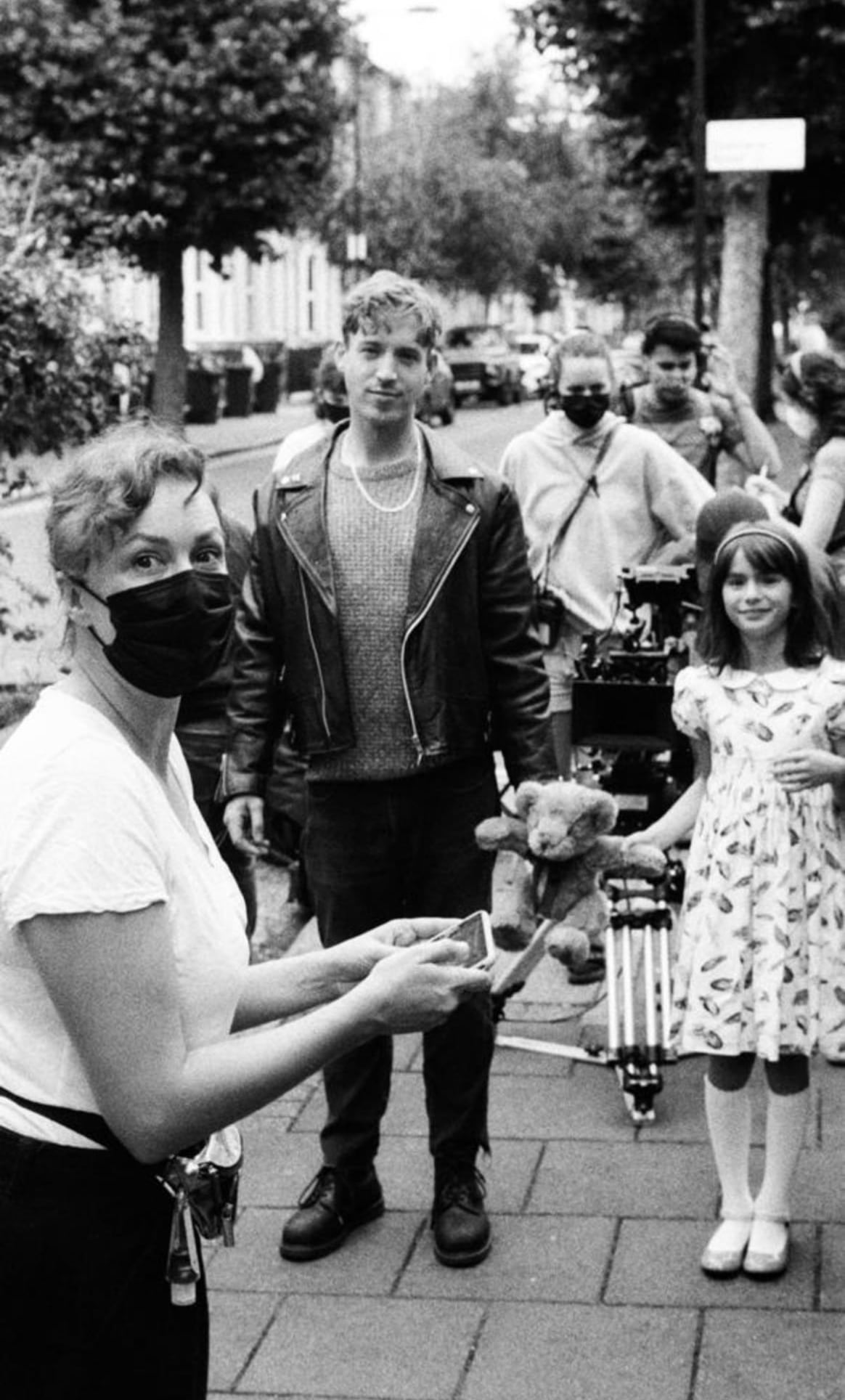
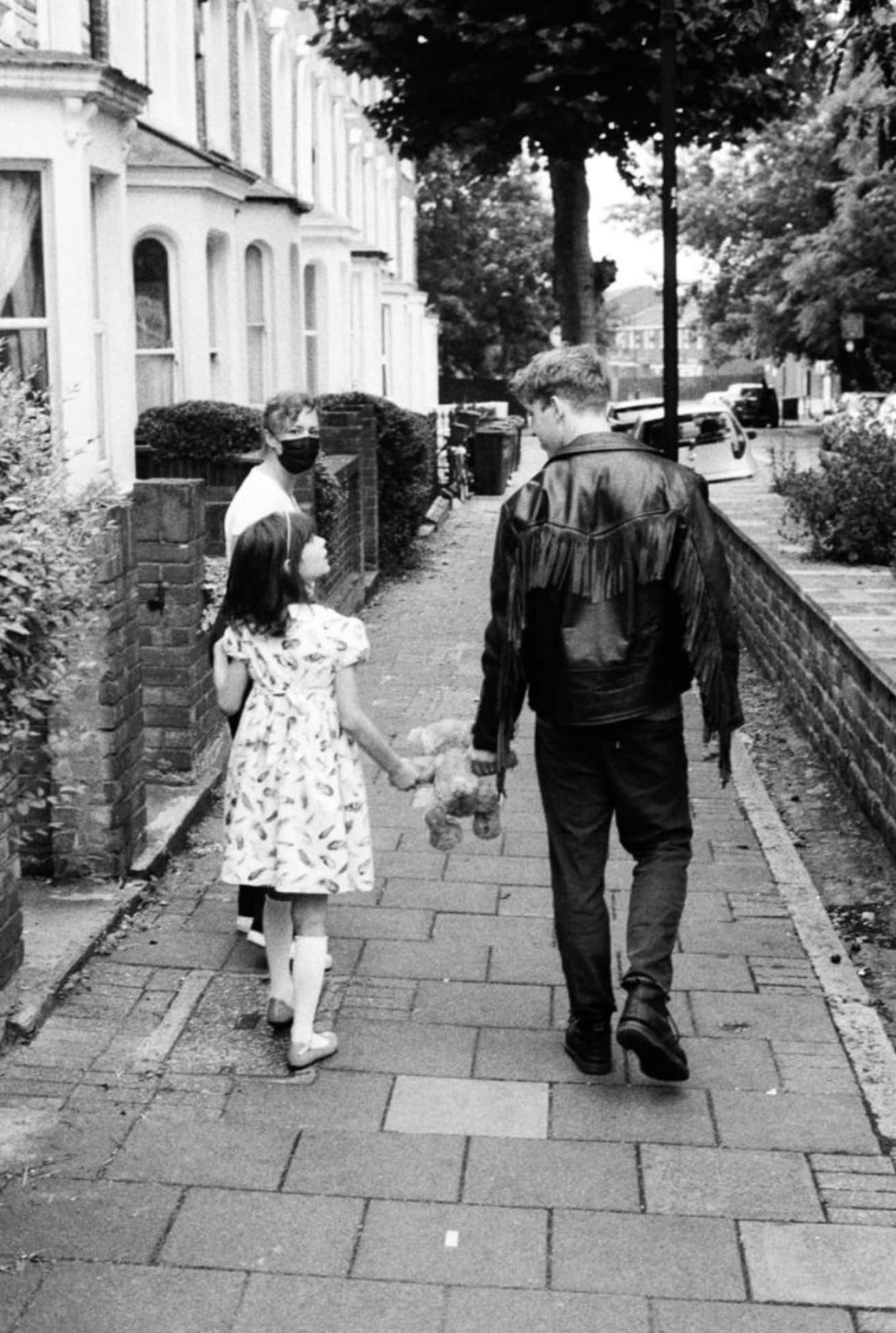
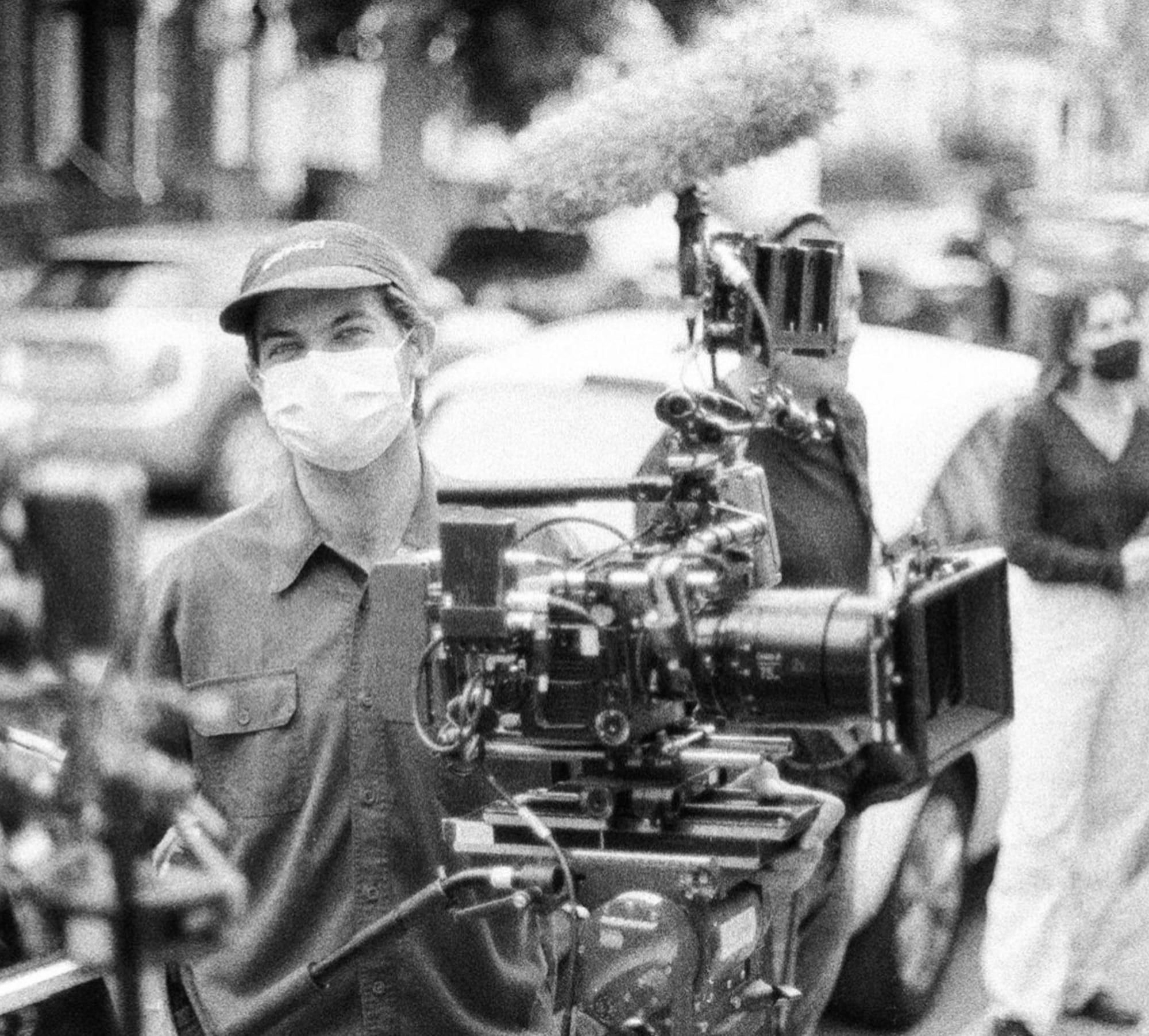
Talk us through your experience in the edit.
We were in and out of Covid and our editor Caitlin Spiller was in Australia at the time so it was a remote edit which was wild! But it really worked. Caitlin and I vibed the minute we met. She just got it. My main thing was that all the humour in this film came from the timing of the edits, the cuts, etc. So I was like gosh we’re gonna need someone hilarious or who has exceptional comic timing. And boom, Caitlin came along who also performs stand-up! What more could you ask for. She’s been continuously nominated throughout the festival run and won Best Editor at the British Short Film Awards…she’s the best and we had a blast and laughed so much.
What else are you working on? Are you continuing to pursue directing?
I am! I directed another short, Not a Mourning Person written and starring Toto Bruin. That was amazing and great to direct something I didn’t write as that was a totally different experience. But funnily enough still about death…seems like I can’t get enough! I am currently working on my next short which is a dark comedy horror and that’s a proof of concept for my first feature. I’ve also just signed on to direct six short films for the International Booker Prize for fiction produced by Merman. So I’m really excited about that!


